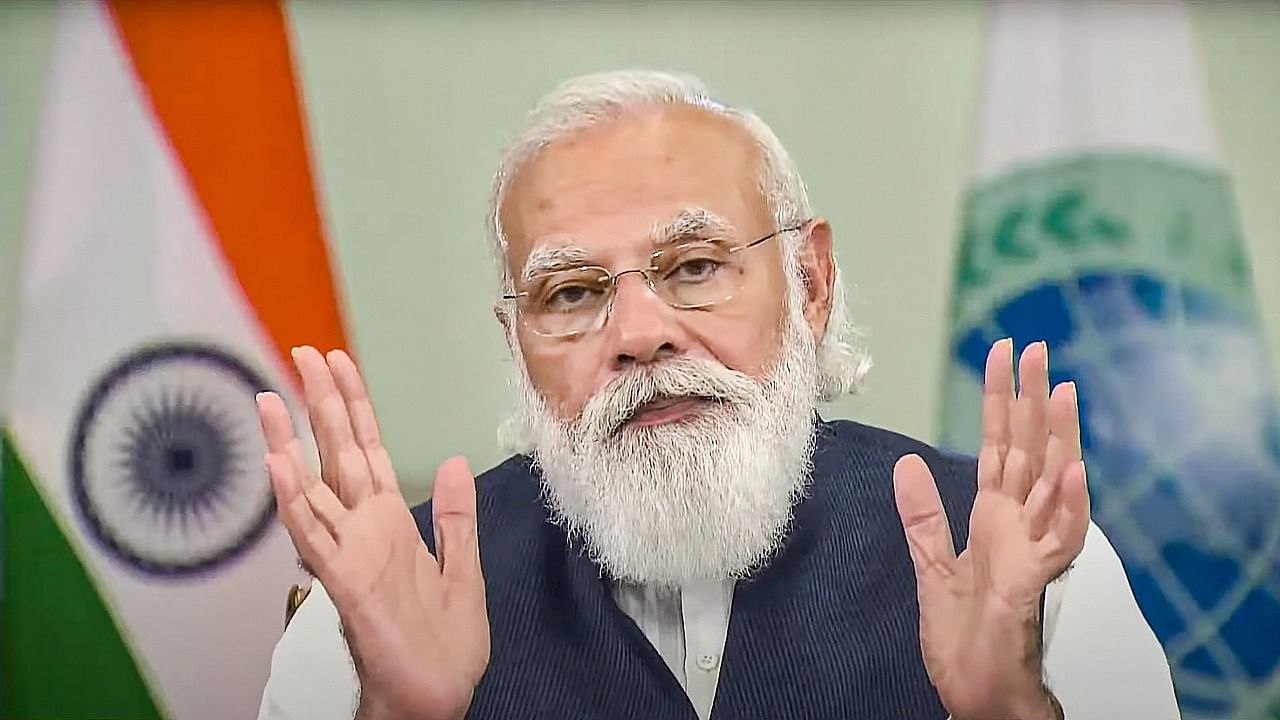
India on Friday for the first time categorically stated that the Taliban’s new regime in Afghanistan was not inclusive and hence its legitimacy had come into question.
Prime Minister Narendra Modi urged the global community to tread cautiously on recognizing the new regime in Afghanistan. He also warned about the advanced weaponry the United States and its NATO allies had left behind in Afghanistan and the possibility of such military hardware posing a threat to the stability in the entire region.
“If fundamentalism continues to thrive and instability perpetuates in Afghanistan, it will keep encouraging the menaces of extremism and terrorism around the world,” the Prime Minister said. He was virtually participating in a conclave of the leaders of the Shanghai Cooperation Organization (SCO) and the Collective Security Treaty Organization (CSTO) on Afghanistan.
The conclave was held on the sideline of the SCO summit hosted by Tajikistan’s President Emomali Rahmon in Dushanbe on Friday.
The Taliban returned to power in Kabul last month through a swift military campaign across Afghanistan, taking advantage of the withdrawal of troops by the US and its NATO allies. The militant organization on September 8 announced an interim government in Afghanistan, with hardly any representation of the ethnic communities other than the Pashtun. It also had no representation of women or religious minorities of Afghanistan.
The Prime Minister on Friday said that the new regime in Afghanistan was not inclusive and it had not been installed through negotiation.
This is the first time India publicly and categorically called out the Taliban Government in Afghanistan for lack of inclusivity.
New Delhi earlier signalled that it might recognize the Taliban’s new regime in Kabul if it was an “inclusive dispensation” with the representation of all communities of Afghanistan, respected the aspirations of the children and voices and rights of women and promised not to allow anyone to use the country to export terror to other countries in the region and beyond.
But the Prime Minister on Friday virtually ruled out the possibility of New Delhi recognizing the Taliban Government in Kabul in near future.
New Delhi has been over the past few months having informal back-channel talks with a section of the Taliban because it anticipated that the militant organization might return to power after the US and its NATO allies would complete withdrawal of troops from Afghanistan and that Pakistan might exploit the situation to gain a strategic edge against India.
The Prime Minister on Friday virtually participated in the SCO summit too. “I believe that the biggest challenges in this area are related to peace, security and trust-deficit and the root cause of these problems is increasing radicalization. Recent developments in Afghanistan have made this challenge more apparent,” he said, urging the nine-member-bloc led by Russia and China to collectively fight the menace of radicalization.
The summit ended with the SCO member states expressing support for Afghanistan as “an independent, neutral, united, democratic and peaceful state, free of terrorism, war and drugs”. “(The) Member states believe that it is critical to have an inclusive Government in Afghanistan, with representatives from all ethnic, religious and political groups of Afghan society,” the SCO stated in the Dushanbe Declaration adopted during the summit.
Check out the latest videos from DH:
